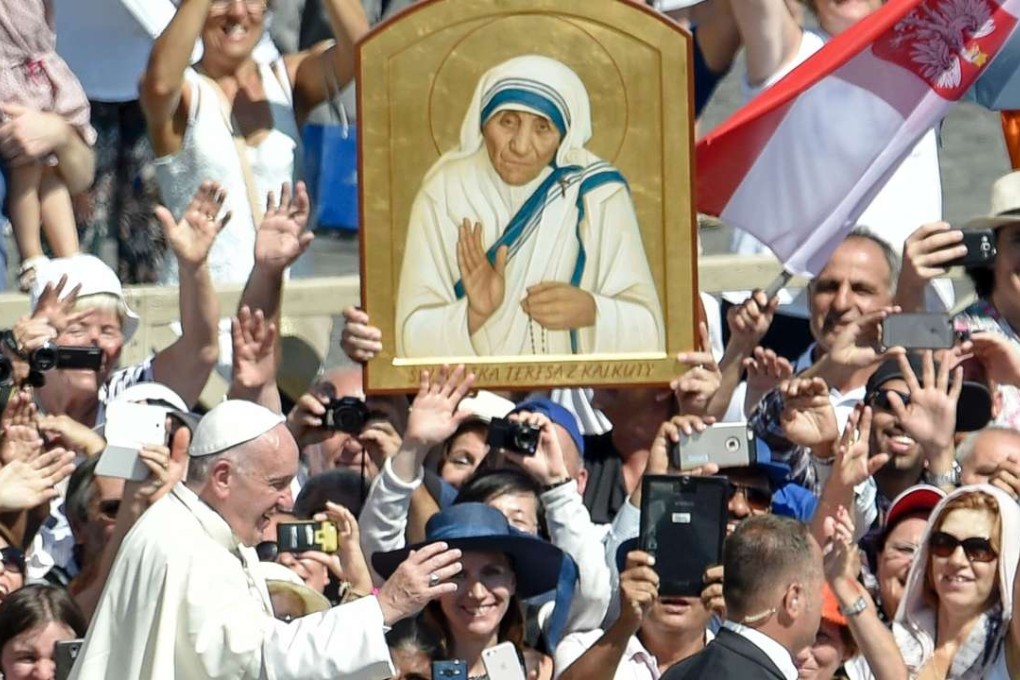Hell’s angel? Saint Teresa of Calcutta just a holy woman doing God’s work
Kevin Rafferty says critics who call the nun an icon of evil against progress lose sight of her mission of charity to serve ‘the poorest of the poor’ and give them the chance to die with dignity

On Sunday, Agnes Gonxha Bojaxhiu, as she was born in Skopje, now capital of Macedonia, was declared Saint Teresa of Calcutta, bringing great joy throughout the Catholic Church and in Calcutta. But the declaration was widely attacked by feminists, leftists, liberals and free thinkers, many of whom regard her as an icon of evil against modern progress.
Polemicist Christopher Hitchens claimed Teresa was “a fanatic, a fundamentalist and a fraud”. Hitchens and Tariq Ali produced a British TV documentary damning her, titled Hell’s Angel. Hitchens wrote a slim book against her, crudely titled The Missionary Position. Mother Teresa promised, “I will pray for him.”
How Mother Teresa rose above criticism to sainthood
I spent a full Christmas morning with her in 1972 unable to get her to sit down or to answer a single question while she press-ganged me and others, who had just stopped by to wish her a “Happy Christmas”, to lug cauldrons of hot soup to the lines of poor waiting to eat and then to serve them.
Later I saw her with orphan children, and with the dying in the hospice in one of Calcutta’s poorest areas. The home for the dying was in the middle of teeming mean streets of dirt and decay. People were lying or sitting on cots, most terminally frail, but all receiving the care in death that they had never received in life. “I want to give the gift of love to these people,” said Mother Teresa, “that they will not go out of the world unloved.” I saw no sign of attempts by the nuns to make deathbed Christians of them, as some Hindu nationalists claimed. Indeed, I saw icons of other religions beside the beds.

Why the heavenly status of Mother Teresa lies in her work on earth
Teresa had a comfortable life at the Congregation of Our Lady of Loreto that educated the girls of Calcutta’s well-heeled families. Yet, in August 1948, she turned her back on the convent and ventured out “to serve the poorest of the poor, and live with them and like them”, as she promised to God.